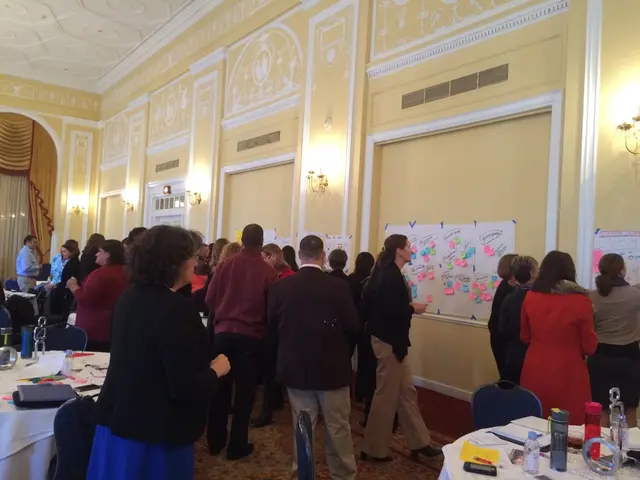Potential Surge of Measles Incidents in the U.S. Over the Next Quarter-Century, Predicted by Experts Due to Decreasing Vaccination Rates
In the coming years, the United States could see a staggering number of measles cases if vaccination rates continue to decline. According to research published in renowned medical journal JAMA, a drop of 50% in childhood vaccinations could result in a whopping 51.2 million measles cases over 25 years. This would lead to millions of hospitalizations and thousands of deaths.
Unfortunately, the situation appears grim, as vaccine skepticism has found a foothold even within government circles. A group of researchers at Stanford University simulated various vaccination rate scenarios, and their results are startling. Even if vaccination rates remained the same as they are projected to be in 2025, the US would still see over 850,000 measles cases in the next 25 years.
A 10% drop in MMR immunization rates could cause a significant uptick in measles infections, with more than 11 million cases over the next 25 years. On the other hand, a 5% increase in vaccinations could mean that the US would only see approximately 5,800 measles cases over the same period. To achieve herd immunity for measles, a vaccination rate of around 95% is needed.
Current vaccination coverage, as estimated by the researchers, ranges between 87.7% and 95.6%. Variation in immunization rates from state to state is evident. For instance, New Yorkhad an estimated childhood vaccination rate of 97.7% for the 2023-24 school year, while Idaho had a rate of just 79.6%.
Before the measles vaccine was introduced in 1963, between 3 and 4 million Americans contracted the measles annually, and tens of thousands were hospitalized. Roughly 400-500 people died each year from the disease. However, measles isn't just deadly; it can also cause "immune amnesia," making the body unable to fight other infections.
Currently, the US is experiencing its worst measles outbreak in a quarter century, with over 800 cases confirmed in 25 states. Three people have died from the measles in the US this year, including two children in Texas and an adult in New Mexico.
Sadly, some parents who have lost their children to measles subsequent to refusing vaccination do not regret their decision. They argue that other unvaccinated family members are healthy and that their children's deaths are unrelated to poor hospital care or the measles itself.
Robert F. Kennedy Jr., who currently heads the Department of Health and Human Services, has been heavily criticized for his stance on vaccines. His organization, Children's Health Defense, claims that vaccines cause autism, a statement that has been repeatedly and unequivocally debunked by the scientific community.
Kennedy espouses the belief that vaccines are responsible for an "epidemic" of autism and asserts that he will reveal the "cause" of autism by the fall. He has been reportedly assembling a team of scientists and compiling a database of private health records of Americans to further his research on this nonexistent "epidemic."
It's important to remember that much of what Kennedy and his followers believe about vaccines is based on fear, misinformation, and a disregard for scientific evidence. By aligning himself with anti-vaccine organizations and pushing unfounded claims about vaccines, Kennedy is contributing to a dangerous trend that could result in a resurgence of preventable diseases.
Maintaining or increasing vaccination rates is crucial to ensuring public health and preventing outbreaks of measles and other preventable diseases. As concerned citizens, it's essential that we prioritize scientific evidence, education, and critical thinking when making decisions about vaccines. Only by doing so can we ensure a healthy future for ourselves and our children.
- If the trend of decreasing vaccination rates continues, the United States may witness a Homo sapiens population of 51.2 million measles cases over 25 years.
- Thedwindling MMR immunization rates could lead to more than 11 million measles cases within the upcoming quarter-century.
- Achieving herd immunity for measles necessitates a vaccination rate of roughly 95%.
- In the current year, the United States is grappling with its most significant measles outbreak in 25 years, with over 800 confirmed cases across 25 states.
- Prioritizing science, education, and critical thinking is vital when making decisions about vaccines to secure public health and prevent measles and other preventable diseases in the future.
- The denial of vaccines, espoused by figures like Robert F. Kennedy Jr., is a threat to scientific evidence and could contribute to a resurgence of preventable diseases, including measles.
- Outside of reputable scientific sources, allegations like vaccines causing autism have been repeatedly and emphatically debunked and should be considered misinformation.







